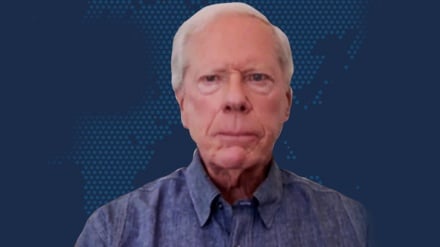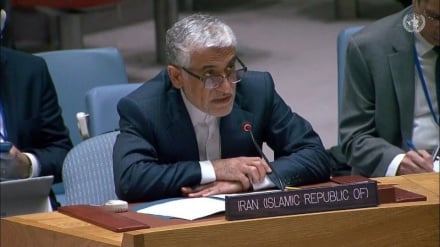A long time coming: Saudi-made famine in Yemen
The world needs to act now because according to a new report by the World Food Program, Yemeni civilians are enduring a famine.
The agency plans to designate several besieged cities as areas of famine as well, because of lack of available food for roughly 73,000 inhabitants in the areas. According to the UN body, Yemen, which is in the midst of a Saudi-led war and blockade, is the site of some of the worst humanitarian conditions on Earth. More than 3.3 million in the area are facing food shortages that do not fall under extreme famine conditions. Millions are without enough to eat, clean water to drink, and other basics like health care as well.
This comes at a time when US Senators have voted to move a resolution to the full Senate floor that would end US support for the Saudi-let military aggression in Yemen, which has been criticized as unduly dangerous to civilians. That was re-examined by lawmakers on Capitol Hill following Saudi Arabia's admission of involvement in the killing of Jamal Khashoggi, a Washington Post columnist at Saudi consulate in Istanbul on October 2.
This also comes at a time when representatives of Yemeni warring factions have gone to Sweden to discuss ceasefire and peace. They want to end the conflict which has killed thousands, displaced millions, created the worst cholera epidemic, and brought about 14 million Yemenis to the brink of starvation. Desperate to escape the Saudi-made famine, to be reunited with their loved ones, and to save the future of their children, the negotiators are picking through the scattered signs of hope that this unnecessary conflict might end.
That could happen if: The world community supports the ongoing peace talks, forces Saudi Arabia and its allies to end their airstrikes and blockade, and allow international humanitarian aid into the famine-hit areas, including the port city of Hudaydah. The Saudis must suspend their belief in the possibility of a single military victory in battle-hardened Yemen to win the upper-hand in talks. That will never happen. They should also stop blaming Iran for their defeat as Iran has no presence in Yemen and has always maintained that there is no military solution to the protracted conflict.
The political consultations are the first step toward putting Yemen on the path to peace. The country needs a solution for its famine right now. The international civil society is united in the desire to end this conflict. Many UN member states have demonstrated their full cooperation with the ongoing political process. The Saudi war was never authorized by the United Nations. It is illegal, all the reason why the United States and its NATO should also end their support for the Saudi aggression.
The ongoing famine and soaring civilian death toll has brought even more to the side of ending Western support for the conflict. Several EU countries have halted arms sales to Saudi Arabia. There is negotiation underway within the US Congress for a series of combined deals, including a non-binding resolution saying Saudi Crown Prince Mohamed Bin Salman is complicit in the grisly murder of Washington Post Khashoggi. They should do the next best thing: Vote for ending the Saudi-led war on Yemen.
The Trump administration refuses to tamp down the panic-mongering and cheap political theater of “Iran presence in Yemen”, supplies the Saudis with weapons with which to flatten Yemeni neighborhoods and kill civilians, generate more refugees, and strengthen Daesh and Al-Qaeda. This makes the US government complicit in Saudi war crimes, as they are deliberately targeting hospitals and clinics in Yemen. This appalling trend disrespects the neutrality of health facilities.
According to the UN Human Rights Office, the indiscriminate bombing campaign has killed and wounded thousands of civilians. The spiraling civilian death toll and humanitarian crisis has brought international shock and condemnation, so much so that Washington has been forced to react. In the words of some US officials, “The White House has been increasingly frustrated as it is starting to see the war as de facto support for Saudi war crimes.” Regardless of the tired tropes and doublespeak, they have facilitated the conflict and are hence responsible for the bloodshed and mass starvation.
It is evident that the Saudis cannot win this unwinnable war. The ongoing blockade and escalation is a humiliating attempt by the Saudis to save face. The world can't be blinded to this shock and terror. The Saudis must be forced to stop the bombing raids and allow the world to see what they have done to the Yemeni people and their hopes for peace. The world community should discount the Saudi lobbyists and censure all war makers and profiteers who masquerade as providers of security for the region and beyond.
The United Nations should create an international commission of inquiry to investigate the Saudi violations of international law as well. This should include the US for taking part in the naval blockade, assisting the Saudi coalition, supplying weapons, intelligence and in-flight refueling of fighter jets and widening the man-made famine. No one should be let off the hook.
In great violation of International Law and International Humanitarian Law, US Secretary of State Mike Pompeo says Washington will double down in support for Saudi Arabia to continue its devastating war on Yemen.
Pompeo's comments come days after the US Senate - in a political charade - advanced legislation to bring an end to US involvement in the illegal war, as the United Nations had warned that "Yemen is on the brink of a major catastrophe."
In other words, despite the Senate legislation and CIA assessment, the Trump administration is still intent on arming the Saudis and prolonging their war crimes and mass starvation in Yemen. However, the heads of prominent aid humanitarian organizations, this week, have all pleaded for a cessation of hostilities so that aid could get into the war-ravaged country.
Sure enough, the warmongers are ignoring the fact that more than 85,000 children have already died since their bombing campaign began in 2015. According to the US Senate, the Saudi and UAE planes have even bombed water treatment plants and other essential civilian infrastructure, leading to a cholera outbreak that has killed thousands of people. They know that the arms they have sold are being used for genocide, crimes against humanity, and war crimes, but they “knowingly” and “deliberately” keep the transfer and even say they will continue support for mass bombing.
The terrible results are out there for any decent human being to see. Thousands of people have been killed, injured or forced to flee their homes because of the US-backed, Saudi-led violence, atrocities and blockade. The majority of casualties are civilians, mainly women and children. What's more, US-made weapons such as missiles and cluster bombs continue to destroy vital infrastructure such as hospitals, schools, homes, markets and transport systems, pushing survivors into poverty - that’s according to numerous UN reports.
On that basis, the US government is in breach of International Law and International Humanitarian Law for its support and for allowing the export of American-made missiles and military equipment to Saudi Arabia that have been systematically used to kill civilians. The accusation comes from international lawyers, human rights groups and the United Nations as well. They are all expressing concerns about Saudi-led coalition attacks, accusing the US government of collaborating with Riyadh instead of preventing and suppressing violations of International Law and International Humanitarian Law by Riyadh as a legal duty.
By now it should readily be evident that it is American weapons and support that have been central to a bombing campaign that has turned Yemen into a failed state and inflamed tensions in the region. President Trump and his administration officials, including Pompeo, are complicit in this deliberate destruction and scorched earth policy, by continuing unleash of support for the unauthorized and unprovoked Saudi assault on the impoverished nation.
In that sense and no other, the US government will have to look elsewhere in legally justifying their arming of Saudi Arabia and its criminal coalition in Yemen. Until that happens, International Law and International Humanitarian Law dictates that Washington stop its support and transfer of arms to Saudi Arabia or share responsibility and international condemnation for civilian suffering in Yemen.
Some 53 percent of Yemen’s population, 15.9 million people, is now facing “severe acute food insecurity” as the direct result of a Saudi-led invasion of the impoverished country and the ensuing economic collapse. The survey, whose results were published on Saturday, was conducted by Yemeni officials and international experts during the month of October based on the Integrated Food Security Phase Classification (IPC), also known as IPC scale.
According to the IPC’s five-point scale, 3 stands for “crisis”, 4 is for “emergency” and 5 is used to refer to “catastrophe” and possible famine.
The survey warned that the 15.9 million people now in phases 3-5 could eventually reach 20.1 million people, 67 percent of the population, if there is not adequate food aid. The number in “catastrophe” would triple to 238,000.
The results held the nearly four-year-long imposed war responsible as the main culprit of the hunger crisis, exacerbated by extremely high food prices, a liquidity crisis, disrupted livelihoods, and high levels of unemployment. The survey also said that food aid, provided by the United Nations and other aid groups, was not enough to plug the gap. It said, “Immediate responses are required to save lives and livelihoods of millions not to slide to the next worse case which is famine.”
The results further showed the presence of many pockets of extreme hunger across Yemen, concentrated in areas with active fighting, particularly in western and northern regions. They also warned that without humanitarian aid, 13 provinces would be in a food catastrophe. Some of the results of the survey were released by the UN on Thursday.
The report was released as the UN brought Yemen’s warring sides together for the first peace talks in two years in Sweden. The Ansarullah movement has strongly rejected demands by its rival group, the country’s former Saudi-backed government. Mohammed Abdulsalam, the head of the Ansarullah delegation at the peace talks, called on the sidelines of the negotiations on Saturday for the formation of a transitional government with the participation of “all political parties.” He also said Yemen’s vital port city of Hudaydah, currently under a tight blockade by the invaders, should be declared a “neutral zone.”
As for the international airport of the capital Sana’a, Abdulsalam said that his movement was open to the possibility of giving the UN a role at the airport as part of an effort to get it reopened. The airport is currently under an imposed closure by the former government and the coalition led by Saudi Arabia. On Friday, the Ansarullah delegation strongly rejected its rival group’s proposals of handing over the port city and inspecting flights to Sana’a airport. The Saudi-led coalition, which has so far bombed the airport several times, has tightly restricted access to the airport. It also controls the air space.
The so-called government, led by Yemen’s former President Abd Rabbuh Mansur Hadi, a staunch ally of Riyadh, has tightly besieged Hudaydah through its armed militia and mercenaries employed by the United Arab Emirates since June, when they launched a full-scale offensive against the western port city.
Since the onset of the operation against Hudaydah, the humanitarian situation has worsened in Yemen due to a broad economic collapse. More than 70 percent of Yemen's imports used to pass through the docks of the vital port. The invaders have failed to achieve their objective of overrunning Hudaydah and defeating Ansarullah and the revolutionaries.
Leading a coalition of its allies, including the UAE and Sudan, Saudi Arabia invaded Yemen in March 2015 in an attempt to reinstall Hadi, who had resigned amid popular discontent and fled to Riyadh. The imposed war initially consisted of an aerial campaign but was later coupled with a naval blockade and the deployment of ground mercenaries to Yemen.
Since the onset of aggression, the Yemeni army, backed by fighters from Ansarullah, has been defending the impoverished nation against the invaders. The coalition is also resolute to crush the movement as another goal in its war on Yemen, which is teetering on the edge of famine. The aggression is estimated to have left 56,000 Yemenis dead. Riyadh had declared at the start of the invasion that the war would take no more than a couple of weeks.
(Courtesy of Fars News Agency)
EA


